Mercedes-Benz Unveils ELF: An Experimental EV Charging Vehicle Pushing the Boundaries of Electric Mobility
Mercedes-Benz has introduced a groundbreaking research vehicle named ELF (Experimental-Lade-Fahrzeug – Experimental Charging Vehicle), designed to revolutionize the future of electric vehicle (EV) charging. This innovative prototype is a mobile laboratory, combining an array of next-generation charging concepts – from megawatt-level fast charging to wireless inductive power transfer – into a single platform. The project signifies Mercedes’ holistic approach to unite ultra-fast, bidirectional, solar, inductive, and conductive charging technologies.
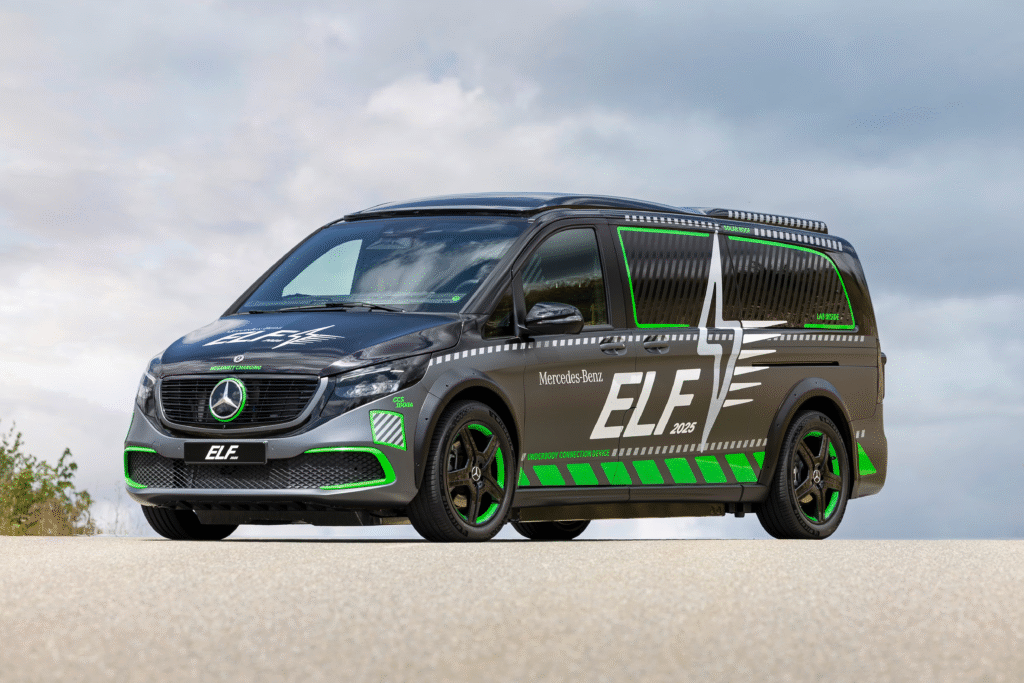
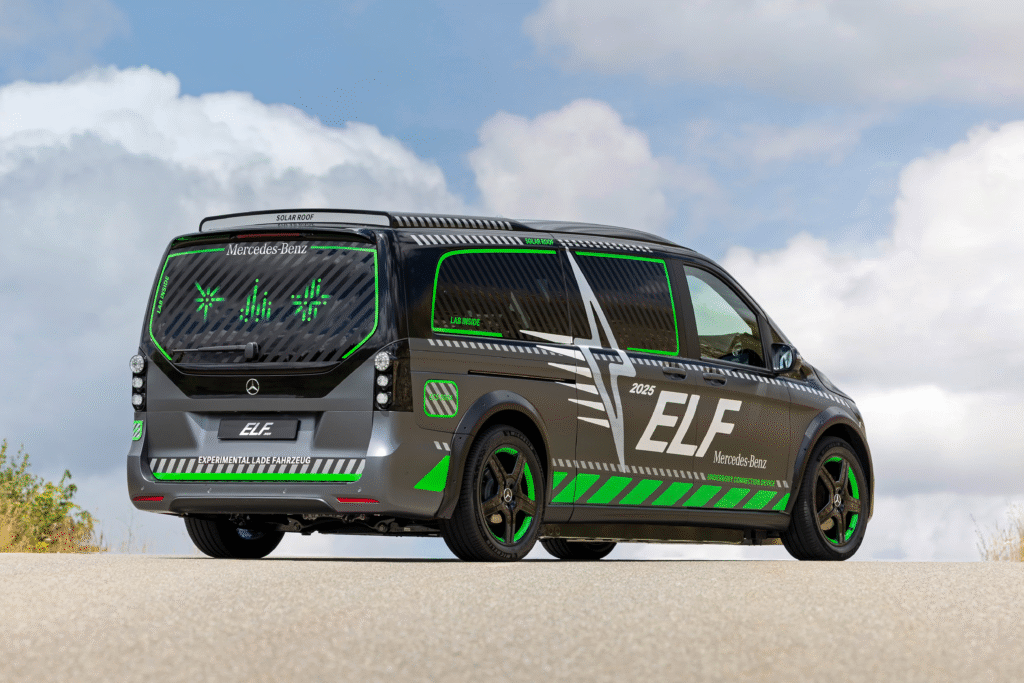
ELF: A Mobile Lab for Next-Gen Charging Technologies
The ELF serves as a crucial platform for Mercedes engineers to test and integrate various developmental charging technologies under real-world conditions, influencing future production models.
- Dual Fast-Charging Systems:
- Megawatt Charging System (MCS): Originally developed for heavy-duty transport, MCS in ELF is used to study the thermal and electrical limits of batteries, cables, and electronics for future long-haul applications, capable of charging at megawatt power levels.
- Combined Charging System (CCS): While standard for passenger EVs, the CCS system in ELF has been pushed to an impressive 900 kW of power, capable of adding 100 kWh in just 10 minutes. These near-production-ready components are expected to influence upcoming vehicles, including the Concept AMG GT XX technology program.
- Bidirectional Charging: ELF tests both bidirectional AC and DC charging, enabling “vehicle-to-home” (V2H) and “vehicle-to-grid” (V2G) applications. This transforms EVs into mobile power storage systems, capable of powering homes during outages or feeding energy back into the grid, potentially saving households about $580 per year through intelligent energy management. Mercedes plans to roll out bidirectional capability in production models starting in 2026 in Germany, France, and the UK.
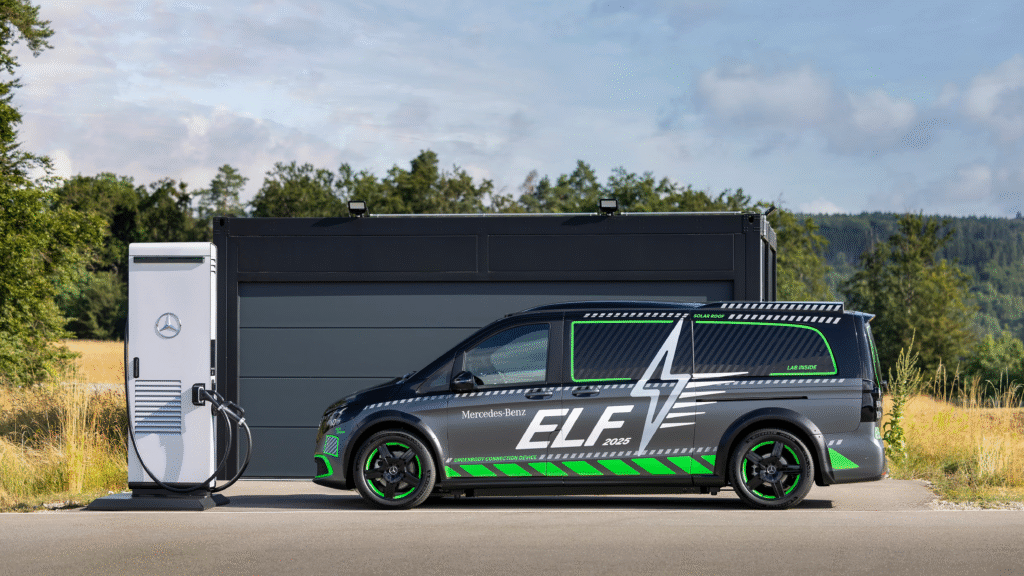
Wireless, Automated, and Future-Proof Charging
Beyond traditional plug-in methods, ELF explores hands-free and highly efficient charging solutions.
- Wireless Inductive Charging: This system uses magnetic resonance to transmit up to 11 kW AC without physical cables. Mercedes is evaluating its convenience, safety, and scalability, especially for markets in Asia and South Africa where plug-free systems are in high demand.
- Automated Conductive Charging: This variant utilizes a charging plate embedded in the floor to achieve similar efficiency, ensuring clutter-free parking areas and simplifying the user experience.
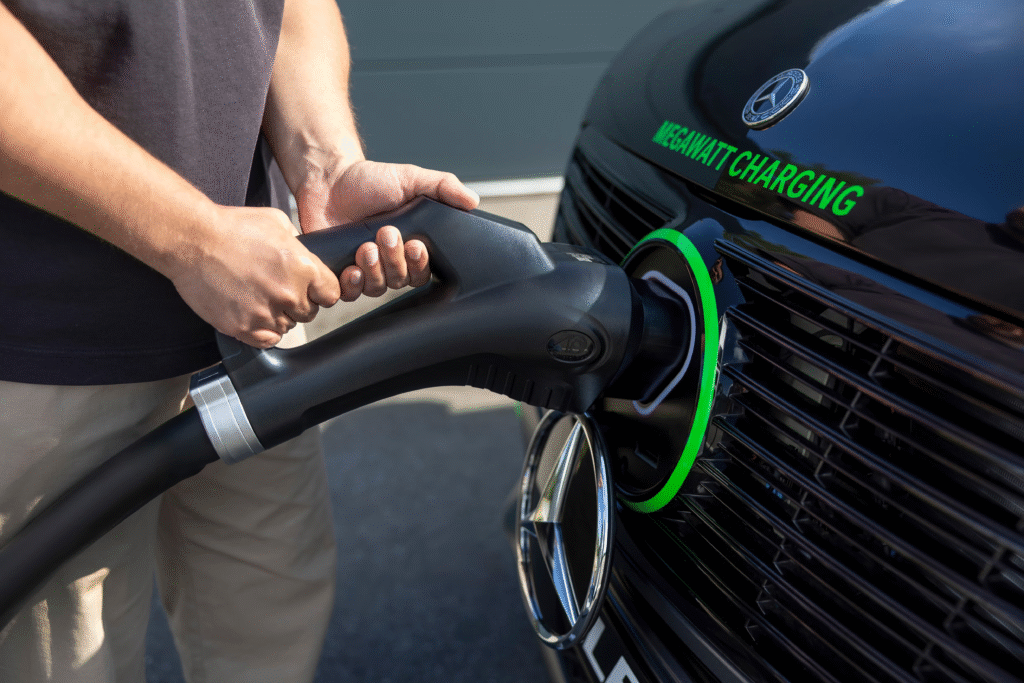
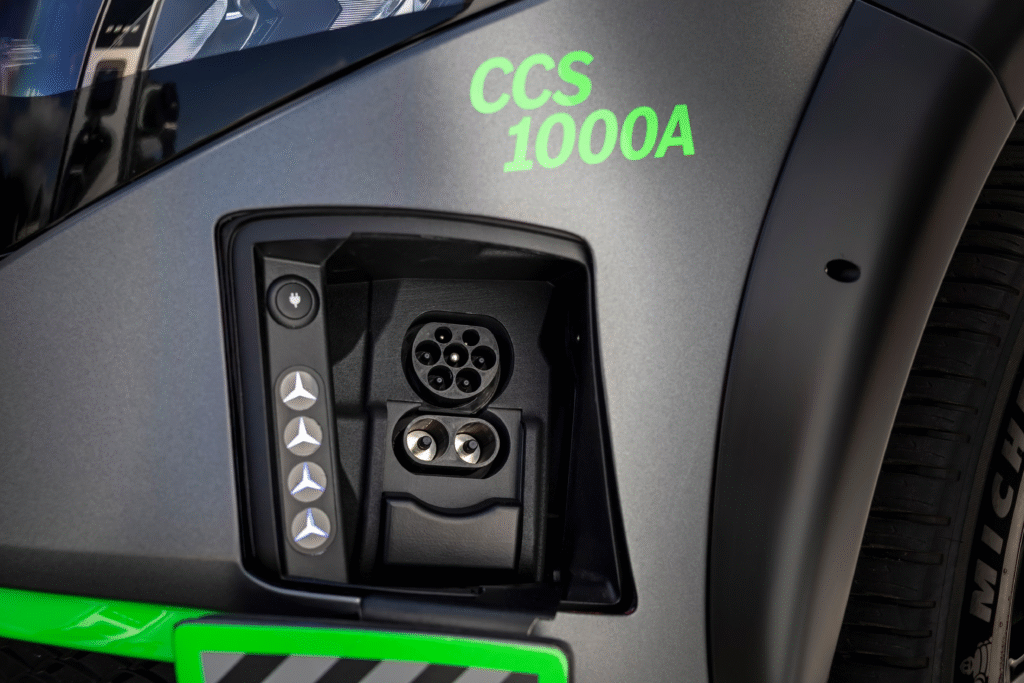
Shaping the Future of EV Infrastructure
The ELF project extends beyond vehicle technology, aiding Mercedes in refining its charging network and infrastructure design.
- Industry Collaboration: Mercedes’ partnership with Alpitronic, a European leader in high-power charging, has already resulted in a prototype charger capable of delivering 1,000 amps via CCS cables—double the current industry norm.
- Integrated Ecosystem: ELF demonstrates a vision where EVs, homes, and the power grid seamlessly interact. By combining ultra-fast charging with bidirectional energy use, Mercedes aims to drastically reduce charging times, cut emissions, and make electric mobility as convenient and intuitive as refueling a conventional car.
Also Read – Renault 5 Turbo 3E Electric “Mini-Supercar” Debuts at Tour de Corse Rally

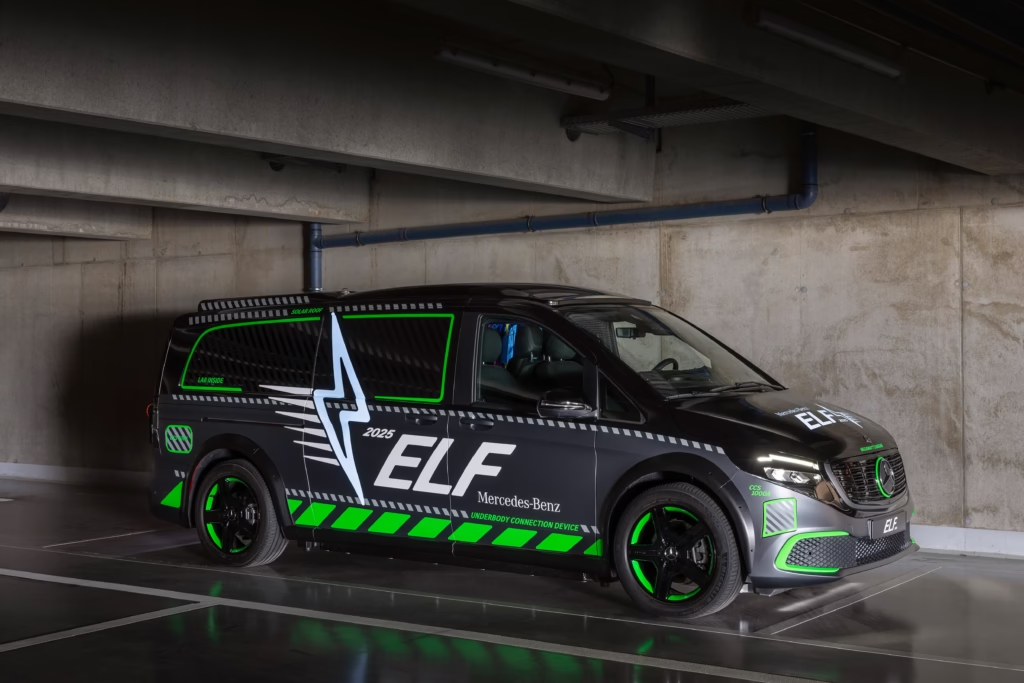


Pingback: Chevrolet Bolt EV 2027 Returns Under $30K With 255-Mile Range, NACS, & Google Built-in - Mechhelp